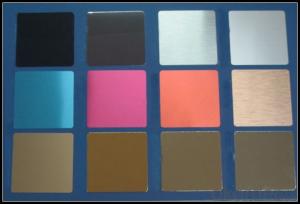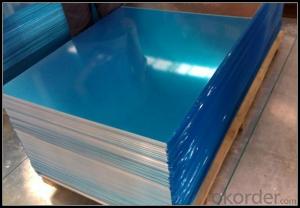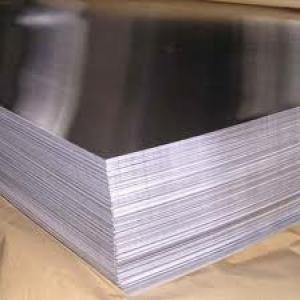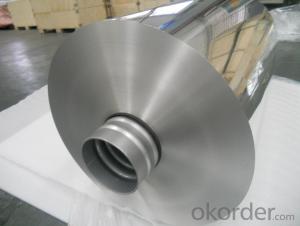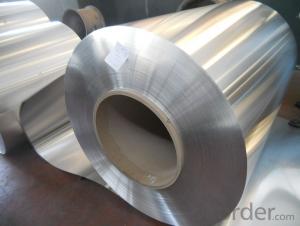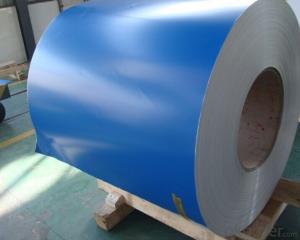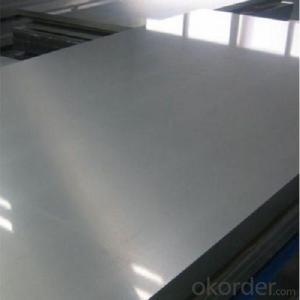Decorative Aluminum Sheet for Ceiling System
- Loading Port:
- Shanghai
- Payment Terms:
- TT OR LC
- Min Order Qty:
- 5 m.t.
- Supply Capability:
- 100000 m.t./month
OKorder Service Pledge
OKorder Financial Service
You Might Also Like
Item specifice
1.Structure of Decorative Aluminum Sheet for Ceiling System
Aluminum Sheets are strengthened and cut from raw materials with different alloys, such as AA5005, AA5052, etc. They are easy for processing in different shapes, good in intensity and can be quickly installed. Aluminium Sheets for Energy Saving Curtain Walls are good in energy saving, weather resistance, fire resistance, easy for maintenance and with many colors.
Aluminium Sheets for Energy Saving Curtain Walls are widely used in construction of metal walls, metal ceilings, car decoration, advertizing panels, etc.
2.Main Features of Decorative Aluminum Sheet for Ceiling System
•High intensity
•Easy to be processed and shaped
•Weather resistance
•Anti-pollution & environment protection
3. Decorative Aluminum Sheet for Ceiling System Images
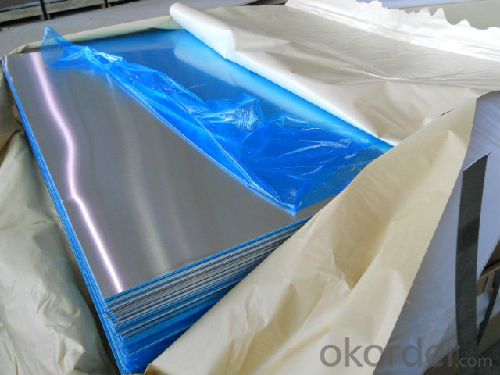
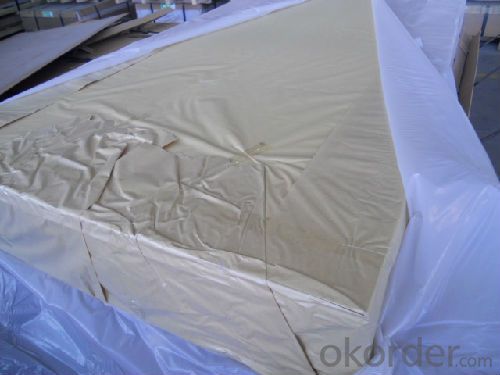
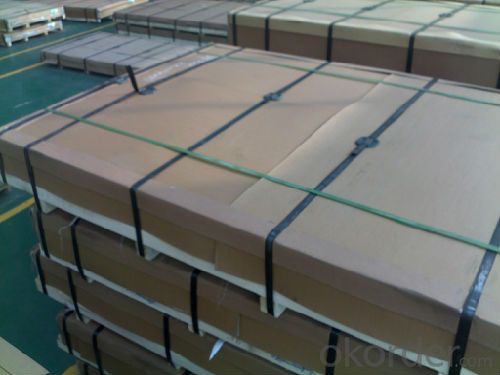
4.Specification of Decorative Aluminum Sheet for Ceiling System
Alloy Number | AA5XXX |
Temper | H12, H14, H16, H18, H22, H24, H26, H32, HO, F |
Thickness | 0.1mm – 500mm |
Width | 10mm- 2200mm |
Standard | GB/T3880-2006, ASTM, ISO, EU standard |
5.FAQ
A.What about inspections to guarantee quality?
For each order for Aluminum Sheets with Mill Finished Surface AA5XXX, we will arrange strict inspection for raw materials, inspection during production and inspection for finished goods.
With requirement of customers, we also can arrange the third party inspection.
B.What about delivery?
We will put order for Aluminum Sheets with Mill Finished Surface AA5XXX in production schedule after order gets confirmed against copy of TT or L/C. Normally it takes about one month for production. Exact shipment schedule is different based on different sizes and quantity.
C.What is the MOQ?
5 tons for each size.
D. Where have you exported aluminium sheets?
We have exported aluminum sheets to many countries. Main markets include South East Asia, Middle East, North America, South America, etc.
- Q:How does the formability of aluminum sheet vary with different alloys?
- The formability of aluminum sheet can vary significantly with different alloys due to variations in their chemical composition and mechanical properties. Aluminum alloys are typically alloyed with other elements such as copper, manganese, magnesium, and zinc to enhance specific characteristics such as strength, corrosion resistance, and formability. Some aluminum alloys, such as the 1xxx series (pure aluminum) and the 3xxx series (alloyed with manganese), have excellent formability and are often used for deep drawing applications. These alloys can be easily formed into complex shapes without cracking or tearing. On the other hand, alloys with higher strength properties, such as the 2xxx series (alloyed with copper) and the 7xxx series (alloyed with zinc), typically have reduced formability. These alloys are often used in structural applications where strength is crucial, but they may require more careful handling and processing to avoid cracks or other defects during forming. Alloys in the 5xxx series (alloyed with magnesium) generally offer a good balance of formability and strength. They are widely used in various industries, including automotive and aerospace, for their ability to be easily formed into different shapes while providing adequate strength and corrosion resistance. It is important to note that the formability of aluminum sheet is not solely determined by the alloy composition but also influenced by other factors such as the thickness of the sheet, the temperature during forming, and the specific forming process employed (e.g., deep drawing, bending, stretching). These factors can interact with the alloy properties to affect the formability characteristics of aluminum sheet. Therefore, it is essential to carefully select the appropriate alloy and process parameters to achieve the desired formability for specific applications.
- Q:Are aluminum sheets easy to work with?
- Aluminum sheets, in general, prove to be easily manageable. Being a light and flexible metal, aluminum allows for easier cutting, shaping, and manipulation compared to its counterparts. It boasts the ability to be effortlessly bent, formed, and welded, granting access to a variety of fabrication methods. Furthermore, aluminum sheets exhibit excellent resistance to corrosion, which enhances their user-friendliness. Whether the goal is constructing lightweight structures, fabricating components, or crafting intricate designs, aluminum sheets offer versatility and convenience across numerous applications.
- Q:How do you protect aluminum sheets from scratches?
- To protect aluminum sheets from scratches, there are a few steps you can take: 1. Handle with care: When handling aluminum sheets, always be mindful of their vulnerability to scratches. Avoid dragging or sliding them across rough surfaces, as this can cause scratches. Instead, lift and place them gently, ensuring you have a clean, smooth surface to work on. 2. Use protective covering: Before storing or transporting aluminum sheets, consider using a protective covering such as a plastic film or paper. This will provide a barrier and prevent direct contact with other surfaces, reducing the risk of scratches. Ensure that the covering is clean and free from any dirt or debris. 3. Store in a safe environment: When not in use, store aluminum sheets in a clean and dry environment. Avoid storing them alongside abrasive materials or objects that could potentially scratch them. Additionally, consider using dividers or separators to create individual compartments for each sheet, preventing them from rubbing against each other. 4. Clean with caution: When cleaning aluminum sheets, use a soft, non-abrasive cloth or sponge. Avoid using wire brushes or rough materials that can cause scratches. Additionally, use a mild detergent or aluminum cleaner specifically designed for this purpose. Rinse thoroughly and dry the sheets completely to prevent any moisture from causing damage. 5. Apply a protective coating: Another option to protect aluminum sheets from scratches is to apply a protective coating. There are various types of coatings available, such as clear lacquers or specialized aluminum protectants. These coatings create a thin barrier on the surface of the aluminum, adding an extra layer of protection against scratches. By following these steps, you can significantly reduce the risk of scratches on your aluminum sheets and help maintain their appearance and integrity over time.
- Q:What is the typical price range for aluminum sheets?
- The typical price range for aluminum sheets can vary depending on factors such as size, thickness, and quality. However, generally speaking, aluminum sheets can range anywhere from $0.25 to $3 per square foot.
- Q:What kind of paint would you like to paint on the aluminum plate?
- Nitro paint, polyester paint can be mainly your base, you should use atomic ash treatment before you can use, otherwise it will peel off
- Q:How do you determine the thickness tolerance of an aluminum sheet?
- To determine the thickness tolerance of an aluminum sheet, several factors need to be considered. Firstly, it is important to refer to the industry standards and specifications for aluminum sheets. These standards typically provide guidelines and tolerances for various thicknesses of aluminum sheets, which can vary depending on the specific alloy and grade of the material. Next, it is crucial to use precise measuring equipment such as calipers or micrometers to accurately measure the thickness of the aluminum sheet. Multiple measurements should be taken at different locations on the sheet to account for any potential variations. Once the measurements are obtained, they should be compared to the specified thickness tolerance provided by the industry standards. The tolerance typically represents the acceptable range within which the actual thickness of the sheet can vary. For instance, if the specified thickness tolerance is ±0.002 inches, it means that the sheet's thickness can vary within this range. If the measured thickness falls within the specified tolerance range, the sheet is considered to be within tolerance. However, if the measured thickness exceeds the upper or lower limit of the tolerance range, it indicates that the sheet is out of tolerance and may not meet the required specifications. In some cases, it may be necessary to consult with the manufacturer or supplier of the aluminum sheet to determine the specific tolerance requirements for a particular application. They can provide additional information and guidance regarding the appropriate thickness tolerance to ensure the sheet meets the intended purpose. Overall, determining the thickness tolerance of an aluminum sheet involves following industry standards, using accurate measuring equipment, and comparing the measured thickness to the specified tolerance range. This helps ensure that the sheet meets the required specifications and can be used effectively in various applications.
- Q:What is the typical density of aluminum sheets?
- The typical density of aluminum sheets is approximately 2.7 grams per cubic centimeter (g/cm³). Aluminum is a lightweight metal with a relatively low density compared to other commonly used metals such as steel. This low density makes aluminum sheets suitable for various applications where a lightweight material is desired, such as in the aerospace industry, automotive manufacturing, and construction.
- Q:Can aluminum sheets be used for electrical wiring?
- No, aluminum sheets cannot be used for electrical wiring. While aluminum is a good conductor of electricity, it is not suitable for electrical wiring due to its high electrical resistance. Copper is the preferred material for electrical wiring as it has low resistance and is more efficient in conducting electricity. Additionally, aluminum is prone to oxidation, which can lead to poor conductivity and potential fire hazards. Copper wires are specifically designed and manufactured to meet the electrical safety standards, ensuring reliable and safe electrical connections.
- Q:Can 101 aluminum sheets be used in the production of consumer electronics?
- Yes, 101 aluminum sheets can be used in the production of consumer electronics. Aluminum is a lightweight and durable material that is commonly used in various electronic devices, including smartphones, laptops, and tablets. The specific grade of aluminum, such as 101, determines its properties and suitability for different applications.
- Q:Can 101 aluminum sheets be anodized?
- Yes, 101 aluminum sheets can be anodized. Anodizing is a process that creates a protective oxide layer on the surface of aluminum, enhancing its corrosion resistance and durability. It can be applied to various grades of aluminum, including 101, to achieve desired finishes and provide additional protection. Anodizing can be done through various methods, such as chromic acid anodizing, sulfuric acid anodizing, or hardcoat anodizing, depending on the specific requirements and desired results. Therefore, 101 aluminum sheets can certainly undergo anodizing processes.
1. Manufacturer Overview |
|
|---|---|
| Location | |
| Year Established | |
| Annual Output Value | |
| Main Markets | |
| Company Certifications | |
2. Manufacturer Certificates |
|
|---|---|
| a) Certification Name | |
| Range | |
| Reference | |
| Validity Period | |
3. Manufacturer Capability |
|
|---|---|
| a)Trade Capacity | |
| Nearest Port | |
| Export Percentage | |
| No.of Employees in Trade Department | |
| Language Spoken: | |
| b)Factory Information | |
| Factory Size: | |
| No. of Production Lines | |
| Contract Manufacturing | |
| Product Price Range | |
Send your message to us
Decorative Aluminum Sheet for Ceiling System
- Loading Port:
- Shanghai
- Payment Terms:
- TT OR LC
- Min Order Qty:
- 5 m.t.
- Supply Capability:
- 100000 m.t./month
OKorder Service Pledge
OKorder Financial Service
Similar products
New products
Hot products
Related keywords
